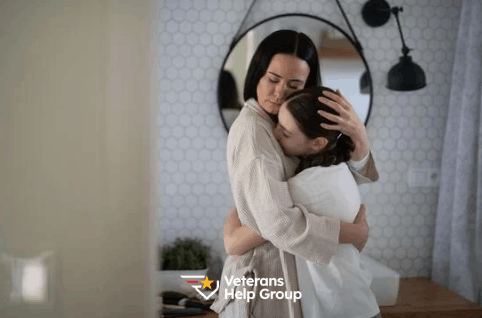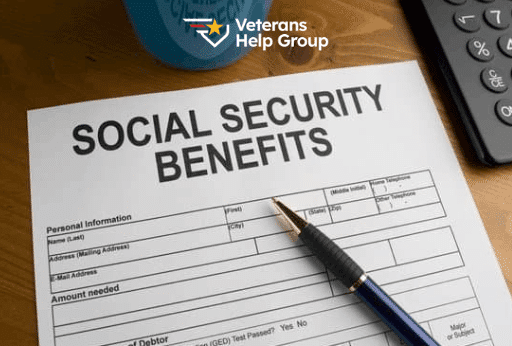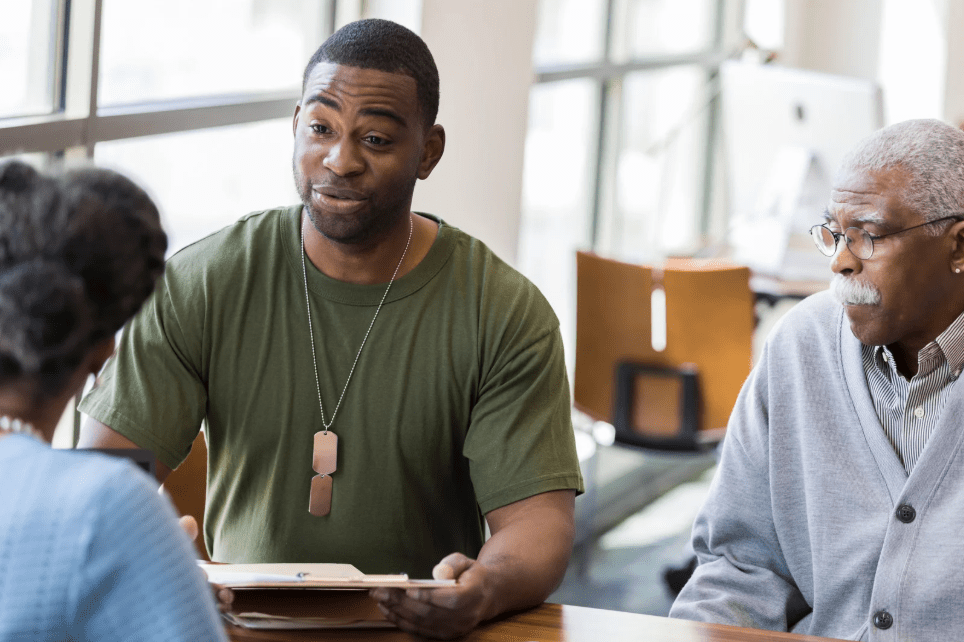Table Of Contents
Unfortunately as more cases of Coronavirus/COVID-19 develop across the country, our veterans are among those most at risk for falling seriously ill from the disease. About half of U.S. veterans are over the age of 65, and many of them have underlying health complications which makes them especially vulnerable to Coronavirus/COVID-19.
If I Get Coronavirus/COVID-19 and Survive, Can I Get an Increase in Benefits for My Service-Connected Condition?
The short answer is: it might be possible. Unfortunately, there is no guarantee. However, if a veteran has a service connected condition, and their condition is aggravated a result of a Coronavirus/COVID-19 diagnosis. For example, if a veteran has a service connected lung condition which is worsened by Coronavirus//COVID-19, then it would be a claim worth pursuing.
Important Note: Coronavirus//COVID-19 and Burn Pit Veterans
Although many veterans with underlying conditions or who are over the age of 65, there is another class of veterans who is especially vulnerable to serious complications from Coronavirus/COVID-19.
Coronavirus/COVID-19 has wreaked havoc with individuals with chronic respiratory problems and compromised immune systems. This includes 9/11 first responders and veteran who were exposed to the toxic fumes from burn pits. Many veterans have developed myriad respiratory issues and other serious ailments believed to be the result of burn pit exposure.
“If you had burn pit exposed lungs and you have more respiratory inflammation on a normal day, you have more vulnerability to the virus once it hits your lungs,” Dr. Nancy Klimas, Director of Institute for Neuro-Immune Medicine at Florida’s Nova-Southeastern University said. Klimas also added that once infected, burn pit veterans have a greater risk of having a more serious form of the illness.
If I Die Due to Coronavirus/COVID-19 and Have a Service-Connected Condition, Can My Dependents Get Benefits?
When a veteran passes away one form of compensation their dependents may be able to receive is Dependency and Indemnity Compensation (DIC), this benefit might still be an option for a veteran who passes away due to COVID-19.
What is DIC?
Dependency and Indemnity Compensation (DIC) is a monthly benefit the VA awards to a surviving spouse or dependent child of a service member who died in action or died from a service-connection condition.
How Do You Prove Service Connection for Cause of Death?
It must be shown that the veteran’s death was service-connected. There are several VA regulations which are meant to help with this process:
· If the death certificate lists the cause of death as one of the deceased veteran’s service-connected conditions, the VA should grant service connection without further investigation.
· If the veteran’s service-connected condition was a contributory cause of death, the VA should presume that it contributed “substantially and materially” to the veteran’s death, and should grant service connection without further investigation.
If the condition that caused the veteran’s death was not already service-connected when they died, you can submit an application for DIC. This process follows the typical disability claims review process to decide whether or not the cause of death is service connected.
Will My Dependents be Able to File for DIC?
If a veteran unfortunately passes a way as a result of Coronavirus/COVID-19 and an already service-connected condition is a factor in their death, like a service-connected respiratory illness, then yes it could be service connected because of that service-connected condition.
Will My Processing Claims be Impacted?
No! Although, the Veterans Benefits Administration is moving entirely online due to concerns over the spread of Coronavirus/COVID-19 there should be no impact to any processing claims. The VA is still open. Many VA staffers are working from home and all benefit claims hearings are being done remotely, including claims hearings before an administrative law judge.
Will My GI Bill Benefits be Impacted?
No! Student veterans will continue their GI Benefits under 3.503, which was signed into law March 21, 2020.
This law enables the VA to continue providing the same level of education benefits to students having to take courses online due to the Coronavirus/COVID-19 outbreak. The law gives the VA temporary authority to continue GI Bill payments uninterrupted in the event of national emergencies. This allows for uninterrupted payment of benefits even if the program has changed from in-class/resident training to online training.
GI Bill students will continue receiving the same monthly housing allowance (MHA) payments they were receiving under December 21, 2020, or until the school resumes in-person classes.
Students receiving GI Bill benefits are not required to take any action. Benefits will continue automatically.
UPDATE: Are there any New Current Positive Cases of Coronavirus/COVID-19 in Veterans?
The VA is tracking Veteran patients with either a CDC confirmed or a locally, presumptively confirmed Coronavirus/COVID-19 diagnosis. Nationally, as of March 27, 2020, there are 571 positive veteran cases:
· Alaska VAHSRO: 1 outpatient
· Ann Arbor, MI: 3 inpatient
· Atlanta, GA: 11 inpatient, 25 outpatient
· Augusta, GA: 2 outpatient
· Bay Pines, FL: 1 outpatient
· Bedford, MA: 1 outpatient
· Birmingham, AL: 1 inpatient
· Boston HCS: 1 inpatient, 2 outpatient
· Bronx, NY: 2 inpatient, 19 outpatient
· Central Alabama HCS: 1 inpatient
· Central Arkansas HCS: 1 inpatient
· Central California HCS: 1 outpatient
· Central Plains HCS: 1 inpatient, 2 outpatient
· Cheyenne WY: 2 outpatient
· Chicago: 3 inpatient, 17 outpatient
· Cincinnati, OH: 1 inpatient, 10 outpatient
· Cleveland, OH: 5 inpatient, 7 outpatient
· Coatesville, PA: 2 outpatient
· Columbia, SC: 2 inpatient, 4 outpatient
· Connecticut HCS: 3 inpatient, 2 outpatient
· Dayton, OH: 1 outpatient
· Detroit, MI: 10 inpatient, 13 outpatient
· Eastern Colorado HCS: 4 inpatient, 21 outpatient
· Fargo, ND: 1 inpatient
· Fayetteville, NC: 1 outpatient
· Greater Los Angeles HCS: 2 inpatient, 1 outpatient
· Hines, IL: 1 inpatient, 2 outpatient
· Hudson Valley HCS: 14 outpatient
· Indianapolis, IN: 6 inpatient, 3 outpatient
· Jackson, MS: 1 outpatient
· Lebanon, PA: 1 outpatient
· Loma Linda, CA: 1 outpatient
· Long Beach HCS: 2 outpatient
· Louisville, KY: 2 inpatient, 1 outpatient
· Madison, WI: 1 outpatient
· Memphis, TN: 1 outpatient
· Miami, FL: 1 inpatient, 3 outpatient
· Milwaukee, WI: 8 inpatient, 9 outpatient
· Minneapolis, MN: 2 inpatient, 2 outpatient
· Montana HCS: 1 outpatient
· Mountain Home, TN: 4 outpatient
· Muskogee, OK: 2 outpatient
· N. Florida/S. Georgia HCS: 5 outpatient
· New Jersey HCS: 7 outpatient
· New Mexico HCS: 1 outpatient
· New Orleans, LA: 14 inpatient, 113 outpatient
· New York HHS: 9 inpatient, 22 outpatient
· North Chicago, IL: 1 inpatient, 13 outpatient
· Northern California HCS: 6 outpatient
· Northport, NY: 6 outpatient
· Oklahoma City, OK: 1 outpatient
· Orlando, FL: 2 inpatient, 12 outpatient
· Palo Alto HCS: 3 inpatient, 4 outpatient
· Philadelphia, PA: 1 inpatient, 2 outpatient
· Phoenix, AZ: 1 inpatient
· Portland, OR: 1 inpatient, 3 outpatient
· Puget Sound HCS: 5 inpatient, 13 outpatient
· San Diego HCS: 1 inpatient, 3 outpatient
· San Francisco, CA: 2 inpatient
· San Juan, PR: 1 inpatient, 16 outpatient
· Shreveport, LA: 6 outpatient
· Sioux Falls SD: 2 outpatient
· Southern Arizona HCS: 1 outpatient
· Southern Nevada HCS: 3 inpatient, 2 outpatient
· Tampa, FL: 1 outpatient
· Tennessee Valley HCS: 1 outpatient
· Togus ME: 1 outpatient
· Tomah, WI: 1 outpatient
· Upstate New York HCS: 1 inpatient, 1 outpatient
· VA Heartland West: 1 inpatient, 4 outpatient
· Washington DC: 2 inpatient, 10 outpatient
· White River Junction VT: 2 outpatient
We will continue to do our best to keep you informed on the latest Coronavirus/COVID-19 news and updates. Stay safe and healthy from our family to yours.
– Veterans Help Group Team

DIC Rates for 2026
DIC Rates for 2026 Dependency and Indemnity Compensation (DIC) can be a lifeline for surviving...

VA Disability Payment Schedule for 2025 (UPDATED FOR 2026)
VA Disability Payment Schedule for 2025 (UPDATED FOR 2026) VA disability compensation provides...

Do You Qualify for Special Monthly Compensation (SMC)? How Disabled Veterans Can Get Extra VA Pay Beyond 100%
Do You Qualify for Special Monthly Compensation (SMC)? How Disabled Veterans Can Get Extra VA Pay...





